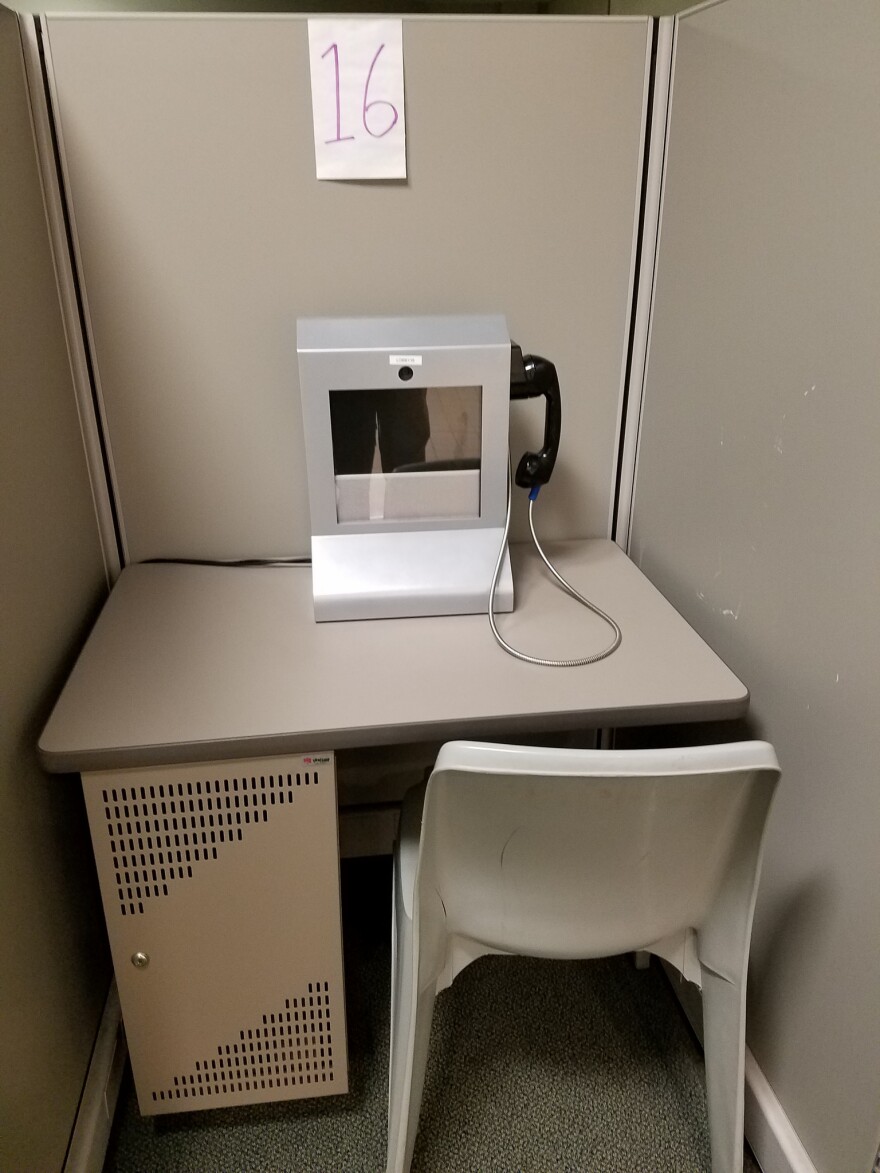The Maine Department of Corrections has finalized a rule that allows individual sheriffs to decide whether or not they’ll allow contact visits between prisoners and their friends and loved ones.
The policy comes as a disappointment for prisoner advocates, who were hoping the DOC would require contact visits consistent with correctional best practices.
In Maine and around the country, a growing number of jails are adopting video visitation as a way to reduce contraband coming into their facilities. Some have eliminated contact visits entirely — Two Bridges Regional Jail in Wiscasset, York County Jail and Somerset County Jail among them.
Jan Collins of the Maine Prisoner Advocacy Coalition fears that more will follow suit because of the new policy adopted by the DOC.
“They did make a change from the policy that said, ‘contact visits “must” be provided every other weekend at a minimum to “should” be provided,’” she says.
At a recent public hearing on the rule change, dozens of people spoke in support of keeping contact visits, including former prisoners and advocates for children and the mentally ill. Another 250 signed an online petition in favor of the practice. There was no opposition.
Collins says that’s because research and correctional “best practices” show that contact visits help strengthen family ties and reduce recidivism.
“We know that the inmates themselves have better outcomes when they actually have contact with their children and interact with them. We know that over 70 percent of inmates in jails have at least one diagnosed mental health issue, and removing in-person visits with members of their family is very detrimental to their mental health,” she says.
“I certainly can understand the concerns that they can’t have that physical one-on-one or close contact, but there are some good advantages to the video,” says Oxford County Sheriff Wayne Gallant, president of the Maine Sheriffs’ Association.
The group hasn’t yet taken a formal position on visitation, but Gallant says he supports allowing sheriffs to decide what works best in their own jails. In-person contact visits, he says, increase the possibility of drugs and other contraband being smuggled in. They also require more staff time, meaning more money.
“When you have a large jail with a large inmate population and you have a lot of contact visitation, it creates a strain on your budgets due to the fact that you need extra personnel just to oversee those contacts,” Gallant says.
But adopting video-only visitation or requiring prisoners to be separated from their loved ones by glass doesn’t guarantee that contraband will be kept out. Last week, a corrections officer was charged with dealing drugs at the York County Jail.
Collins says her group will continue to urge the DOC and sheriffs to rethink these policies. And in January they’ll push for legislation to ensure that contact visits are not eliminated in Maine.




